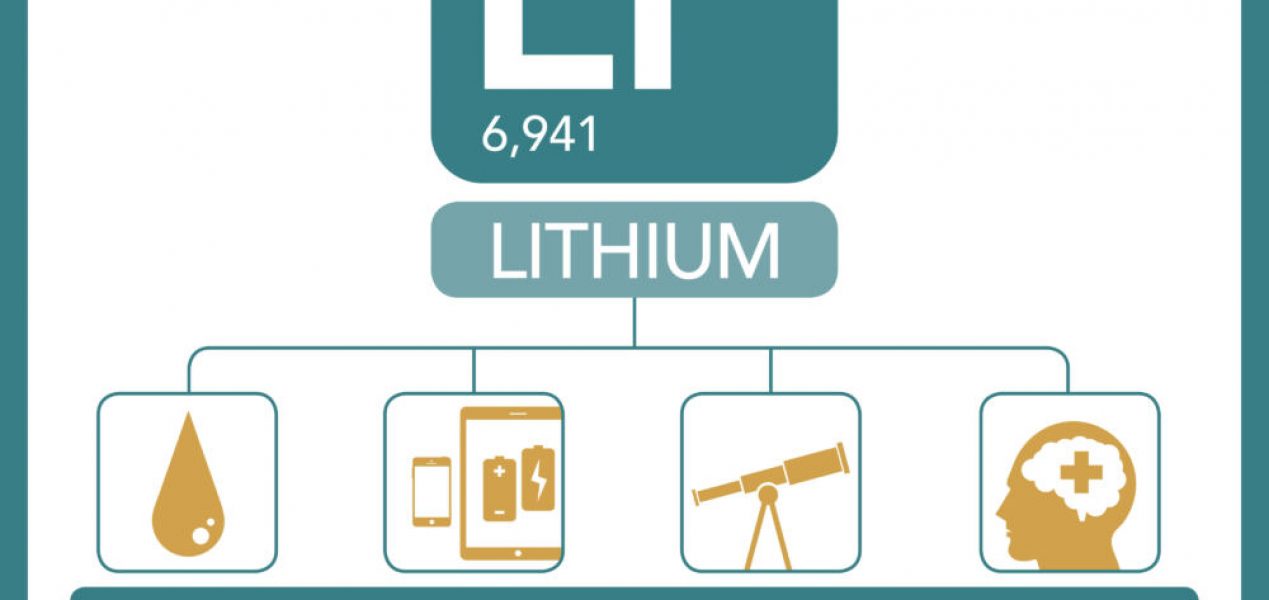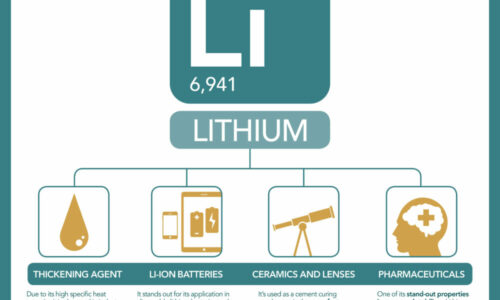Almost 14 million years ago, before the Universe existed, there wasn’t anything at all: time, space, matter… nothing. Until the Big Bang happened, and with it, Lithium was created.
Lithium (Li), together with Helium and Hydrogen, is one of the primary elements of the Universe, having been synthesised immediately after the Big Bang. Though it is relatively abundant in the Earth’s crust, it never occurs freely in nature but rather forms part of various compounds.
It is the lightest metal in the periodic table, featuring a density that is practically half that of water and, as a member of the alkali metals, is highly reactive to water and oxygen.
It has multiple applications, and its properties make it stand out as a mood stabiliser: Lithium salts are widely used in drugs for the treatment of bipolar disorder, depression, and other mental disorders.
Thanks to its high specific heat capacity, it is also used in industry in the form of a stearate or hydroxide as a thickening agent for lubricating greases for high temperature applications. Other secondary uses, always in the form of salts, include as a cement curing accelerator, in the manufacture of ceramics and lenses for telescopes and glasses, air conditioning systems, air purifiers in spacecraft and submarines, etc.
However, if there is one application that stands out above all the rest, thanks to its high electro-chemical potential, it is in electric batteries, traditionally in disposable Lithium batteries and, more recently, in Li-ion batteries which enable a large amount of energy to be stored in a compact space in comparison to weight. These batteries can be recharged multiple times without losing almost any capacity, leading to their popular use in electronic devices such as mobile phone, tablets, laptop computers, etc.Y, en plena era de la movilidad sostenible, la industria automovilística ha apostado por el desarrollo de coches eléctricos en los que las baterías de Li-ion juegan un papel fundamental, incrementándose todavía más la demanda de Li.
Additionally, in the full-blown era of sustainable transport, the automobile industry has opted to develop electric cars in which Li-ion batteries play a key role, thereby increasing the demand for Lithium even more.Podríamos decir que el Litio es el elemento más antiguo del Universo y, sin duda, una de las claves del futuro de la vida sostenible en la Tierra.
“Considering the growing need for Li-ion electric batteries, and taking into account the fact that we won’t have an indefinite supply of this element, scientists and engineers are developing substitutes” comments Carine Lèpinay, Product Buyer at Barcelonesa, and adds: “One of the most promising lines of research is in zinc batteries, which can weigh up to three times less and store a charge that is up to five times greater”.
It could be said that Lithium is the oldest element in the Universe and, without a doubt, one of the keys to the future of sustainable life on Earth.
Grupo Barcelonesa sells numerous Lithium compounds for multiple applications: hydroxide (thickening agent for lubricating greases), carbonate (cement curing), bromide (air conditioning systems), acetate (pharmaceuticals), chloride (obtaining Li through electrolysis), and silicate (ceramics).


